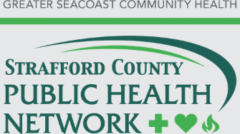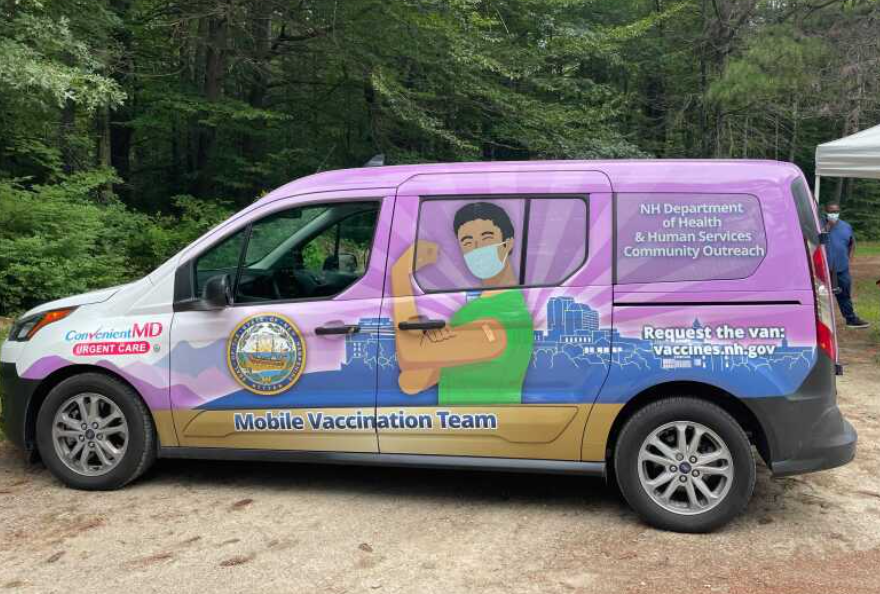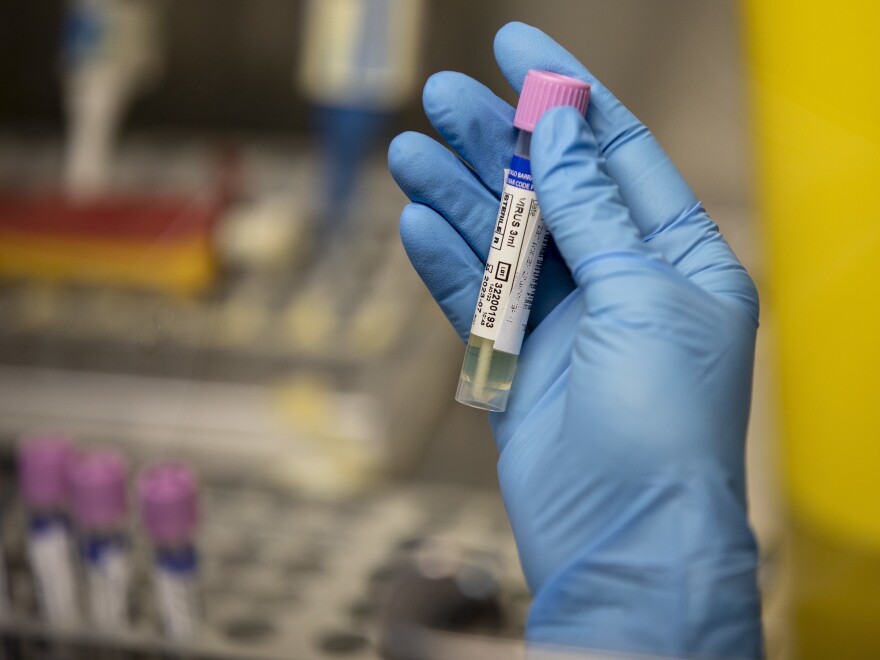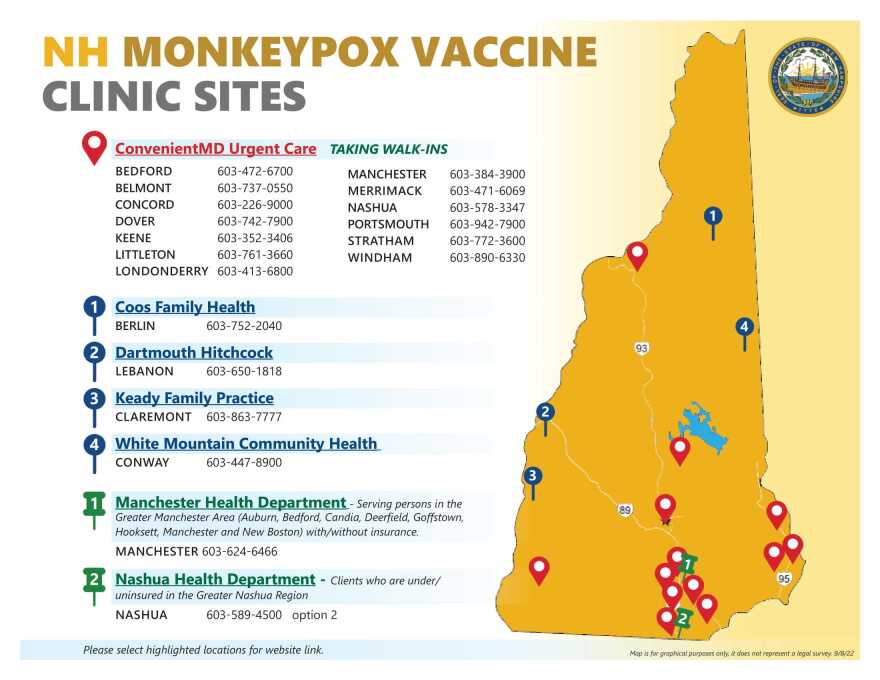Why doctors think you should get the COVID vaccine: Avoid infection and long-term effects
Read the full article on Fosters Daily Democrat
By Karen Dandurant
Vaccine clinics are reporting less participation as the country struggles to reach hoped for herd immunity.
The Centers for Disease Control and Prevention has vouched for the safety and efficacy of the vaccines and most states, including New Hampshire and Maine, are now running advertising campaigns seeking to reach those people who are hesitant to get the COVID-19 vaccine.
The American Medical Association released a new survey last week among practicing physicians that shows more than 96 percent of surveyed U.S. physicians have been fully vaccinated for COVID-19, with no significant difference in vaccination rates across regions. Of the physicians who are not yet vaccinated, an additional 45 percent do plan to get vaccinated.
“Practicing physicians across the country are leading by example, with an amazing uptake of the COVID-19 vaccines,” said AMA President Dr. Susan R. Bailey. “Physicians and clinicians are uniquely positioned to listen to and validate patient concerns, and one of the most powerful anecdotes a physician can offer is that they themselves have been vaccinated. You can take it from your doctor: the COVID-19 vaccines are safe and effective. With COVID-19 vaccines readily available and approved for all people 12 years old and up, we urge you to get vaccinated – take the single most important step you can to protect yourself, your family, and end the COVID-19 pandemic.”
The biggest arguments for getting the vaccine is based on building herd immunity and that it is the right thing to do. People who are vaccinated can offer protection for those close to them who are unable to be vaccinated, like babies and those with health risks that preclude them from being vaccinated. Protect yourself and your loved ones around you is what usually has most resonance – and now nearly 200 million (170) have received at least one dose so that can diminish safety-risk concerns somewhat.
“There are many compelling arguments for being vaccinated, including one based on what neurologists are beginning to see as the impacts on long haul COVID sufferers, people who are having adverse effects from COVID months after the disease has cleared their system,” said Dr. Kevin Zent, a family practice physician at Goodwin Community Health.
“Besides the obvious, not getting COVID-19, doctors offer a few of the things that can happen if a person doesn’t get vaccinated.
“The number of patients we are seeing with complaints of long haul COVID are becoming more frequent,” said Dr. Alexandra Filippakis, a neurologist at Wentworth-Douglass Hospital. “Our new patients have increased in line with what we are seeing across the nation.”
Filippakis said a recent study of more than 100 long haul COVID patients shows that 85% of them are exhibiting neurological symptoms, some as much as four to six months after they should have cleared the disease.
“Post COVID clinics are popping up across the country and neurology is right up there in those clinics,” she said. “We are seeing a lot of headaches, some to the level of migraines and we are seeing them in people who have had migraines in the past and in people who have never had them. All of the symptoms can appear in people who had mild cases, or severe cases. It doesn’t seem to make a difference. It is frustrating to them and to us. They feel lousy and we can’t tell them why.”
Other people are reporting experiencing uncomfortable numbness or tingling in limbs.
“This can be constant or intermittent,” said Filippakis. “These are sensory symptoms that are hard to track, but they are being seen everywhere. We are seeing a lot of sleep disturbances. One of our patients had not slept in four days, even with his fatigue — because of his pain.”
Filippakis said patients are being seen with neuro-psych issues.
“They are having memory issues, problems with attention and what we are calling brain fog,” she said. “Dysautonomia, adverse impacts on blood pressure and heart rate is happening. And most patients are having multiple of these symptoms. They have good days and bad days.”
The approach is palliative, working to treat symptoms. Filippakis said she asks her patients if they are vaccinated.
“I will talk with them and tell them my thoughts,” she said. “I tell them I believe the vaccines are safe. I tell them I am vaccinated. My family is vaccinated. The decision is theirs. I tell them we are all learning about this virus together and to not discount their symptoms because they are not alone in having them.”
Anecdotally, Filippakis said doctors are beginning to see that if long haul COVID patients get the vaccine, many begin to feel better.
There are also impacts from COVID-19 that have not yet been seen in this country, but could be.
Dr. David Itkin, an infectious disease specialist at Portsmouth Regional Hospital, said a serious infection is emerging in India, where cases are not yet in control.
Mucormycosis, also called black fungus, is a rare but dangerous infection. It’s caused by a group of molds called mucormycetes and can affect sinuses, lungs, skin and brain.
“Mucormycosis is not a US problem, but it is linked to COVID cases in India,” said Itkin. “It is a serious infection and is it possible that it could be an additional adverse effect, an outcome we haven’t seen yet? They answer is yes.”
India has had more than 9,000 cases of COVID-related mucormycosis, Itkin said. He said it tends to appear two to three weeks after a person has had COVID.
“It is a rare condition, but it happens more in people who are highly immune compromised, like a person with out of control diabetes. We are not quite sure why. It might have to do with climate issues as well. Hot, humid climates promote fungal growth.”
Another theory is that is is happening because of the high use of steroids used to treat COVID in India.
“Their standard of care differs from ours,” said Itkin. “We use steroids to treat, too. But they use higher doses and zinc in a cocktail-type treatment. They are in a tough place, with about 30 million cases so far.”
“The take home here is that mucormycosis is a curiousity here, but it does illustrate the fact that there are potentially unforeseen consequences of getting COVID, ones we may not even know about yet,” said Itkin. “The best way to prevent yourself from getting any of the COVID complications is to not get COVID. The best way to do that is to get the vaccine. We have had people as young as 20 here in the hospital with serious disease. The disease has no set range. Everyone can get it, and no one is immune.”
Filippakis said some people tell her they think COVID is like the flu, and they will get it and be fine.
“What we are seeing in the clinic makes this a no brainer to me,” she said. “Preventing this is better than dealing with a disease that no one can predict how it will affect you, or how long it will last, how long it will impact your life.”



